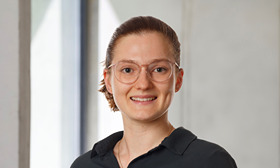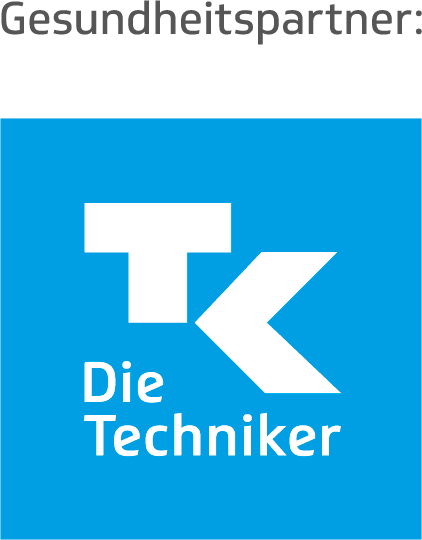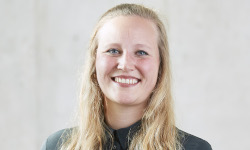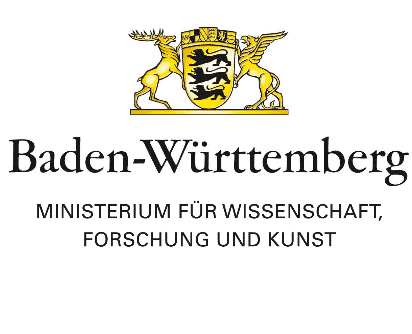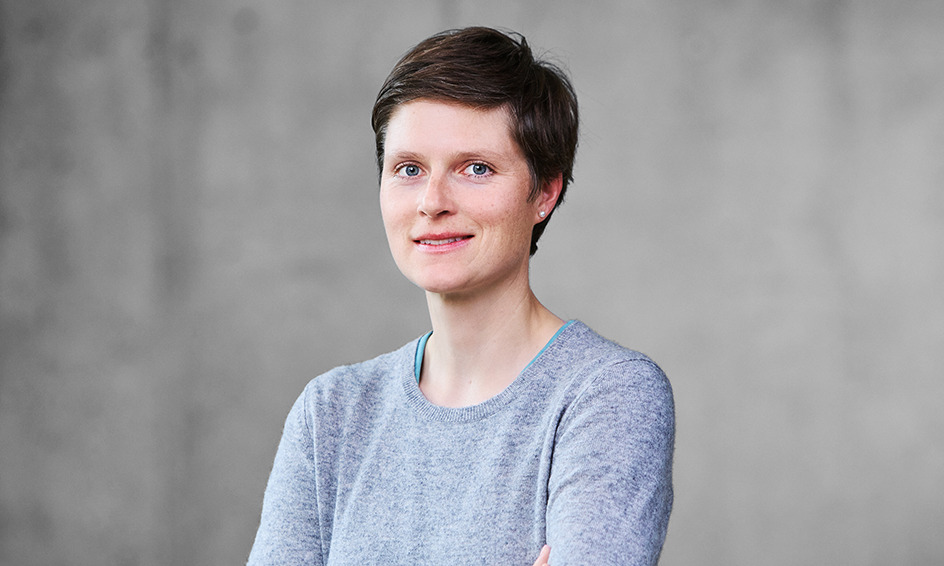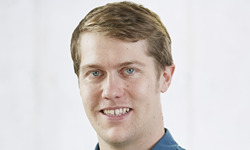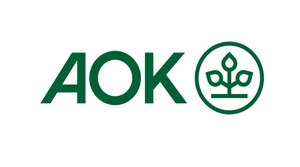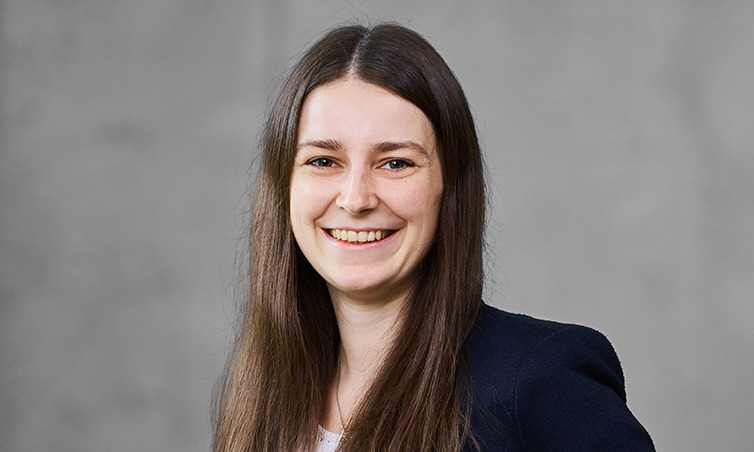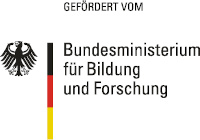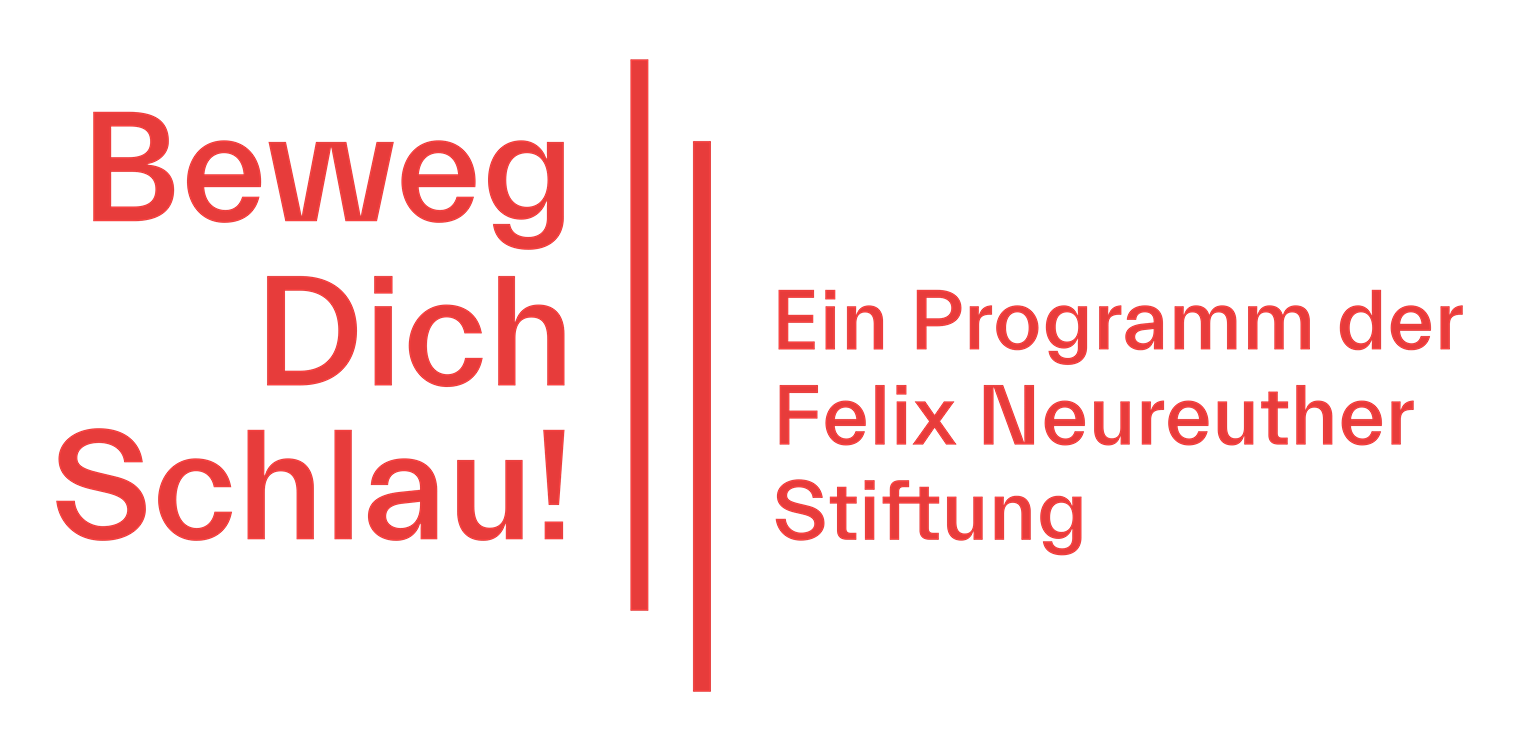
Accompanying research in the context of promoting physical activity in day-care centers in the Rhine-Neckar metropolitan region
- contact:
PD Dr. Bettina Barisch-Fritz, Kathrin Oebel
- project group:
Social and health sciences
- funding:
- status:
ongoing
- startdate:
2025
- enddate:
2028
As part of the project, the implementation of the program "Beweg dich schlau! A program of the Felix Neureuther Foundation" (BDS)" is being scientifically monitored. The program is carried out in cooperation with the Heidelberg Ball School as the BDS Ball School and implemented in around 52 daycare facilities in the Rhine-Neckar metropolitan region. The programme works on several levels - organization, content, personnel, material - and includes the family, daycare centre, sports club and community.
The core elements of the BDS Ball School program are
- Playful movement and relaxation exercises to promote physical activity and cognition
- Further training to qualify the educational staff
Although many daycare centers have a physical activity-friendly environment, almost half of children between the ages of four and six do not achieve the physical activity levels recommended by the WHO. The aim of the project is therefore to investigate the implementation of the BDS Ball School program. To this end, a structural analysis and process evaluation will be used to identify conditions for success, barriers and long-term implementation strategies. The results obtained will ultimately provide practice-oriented recommendations for implementation in other facilities.
Project management
Prof. Dr. Alexander Woll
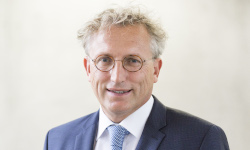
+49 721 608 - 41661
Alexander.Woll∂kit edu
Academic assistant
Manuel Leitner
Manuel Leitner ∂does-not-exist.kit edu
Academic assistant
Kathrin Oebel
Kathrin Oebel ∂does-not-exist.kit edu

SUST(R)AINPRO-KIT: Systematic support and creation of structures for a transparent infrastructure for mental health in the doctoral process at KIT
- contact:
Prof. Dr. Kathrin Wunsch, Karolin Schmid
- project group:
Social and health sciences
- funding:
Techniker (Healthcare)
- status:
ongoing
- startdate:
2025
- enddate:
2028
The SUST(R)AINPRO-KIT project aims to establish and expand sustainable structures at KIT in order to promote the mental health of doctoral candidates and reduce psychological stress. As existing services at KIT primarily focus on acute counseling and crisis intervention (secondary/tertiary prevention), the project concentrates on primary prevention in the area of mental health. The aim is to systematize existing internal and external services and build a network of stakeholders and target groups in order to establish long-term health-promoting structures. This early prevention should help to increase the well-being and life satisfaction of doctoral students and relieve the burden on mental health contact points at KIT and in the surrounding area.
- Duration: 10/2025 - 09/2028
- Sample: The target group is the approximately 3,500 doctoral students at KIT. They represent a particularly vulnerable group in the university context, as they are exposed to a variety of academic, social and organizational stresses and thus show increasing prevalence of mental illness.
Strong doctorate - healthy research: That is the goal of SUST(R)AINPRO-KIT. The project follows the intervention mapping approach and the PDCA cycle (Plan-Do-Check-Act) and is divided into three central sub-projects.
1. needs and requirements analysis (SP1): First, mental health, stress factors and resources of doctoral students are collected by means of surveys, focus groups, interviews, research of existing data and at the same time existing offers within and outside the KIT are systematized.
2. target definition and intervention plan (TP2): The first step is to define specific and long-term goals. Preventive measures are planned in the theory- and evidence-based intervention planning. The measures are developed in a participatory manner together with the target group and the relevant stakeholders.
3. implementation and evaluation (SP3): This is followed by the implementation of a suitable measure. The effectiveness is evaluated using qualitative and quantitative methods (e.g. RE-AIM framework). Finally, improvements and potential transferability to other status groups are derived.
NADHJA – non-invasive lactate measurement
- contact:
Dr. Stefan Altmann, Maximiliane Thron
- project group:
Social and health sciences
- funding:
Ministry of Economic Affairs, Labour and Tourism of the State of Baden-Württemberg, investBW
- status:
Ongoing
- startdate:
2025
- enddate:
2027
The aim of the project is to develop a mobile, AI-supported device that can capture the metabolic state of the entire body through a non-invasive, fluorescence-optical skin measurement. This will provide real-time verifiable information on energy metabolism and possible deficiencies, without the need for blood sampling and without biological waste. In sports medicine performance diagnostics, blood lactate concentration has so far been used to determine thresholds and endurance capacity. This method is invasive, analog, and has remained unchanged for decades. By correlating NADH and lactate, it will for the first time be possible to achieve continuous, non-invasive, and digital monitoring.
Funding period
2025 - 2027
Study sample
Individuals of different age, genders, and performance levels
Research questions
Can the correlation between NADH and lactate be reliably and validly demonstrated using a newly developed non-invasive measurement device, and is this method suitable for determining individual thresholds?
In the initial work packages, the project partners (mfd Diagnostics GmbH, University Medical Center Mannheim, ITIV KIT) will prepare the technology and software, conduct simulations and laboratory tests, and align the measurement methodology in order to first develop a prototype for non-invasive lactate measurement. In the final stage, a subject study (IfSS) will be carried out to examine the correlation between NADH and lactate using the newly developed measurement method. After initial pilot measurements, which will test and optimize the feasibility of the study design (e.g., device setup, exercise protocol), the main study will follow with participants of different ages, sexes, and performance levels. During the study, participants will complete an incremental cycling test while blood lactate is measured using established reference methods, NADH concentration is recorded with the new device, and heart rate is monitored. In addition, repeated measurements will be conducted to assess the reliability of the prototype. The collected data will be statistically analyzed to evaluate the validity and reproducibility of the prototype in comparison to established lactate diagnostics. The results will provide an assessment of the method’s applicability in clinical practice as well as in recreational and elite sports, and will serve as a basis for scientific publications.
Project management
Prof. Dr. Alexander Woll
+49 721 608 - 41661
Alexander.Woll∂kit.edu
Project management
Dr. Stefan Altmann
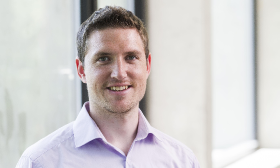
+49 721 608 - 47540
Stefan Altmann∂kit edu
DAAD: Transferability and Sustainability of Health Behavior in Intercultural Dialogue
- contact:
Prof. Dr. Klaus Bös
- project group:
Social and health sciences
- funding:
Deutscher Akademischer Austauschdient (DAAD)
- status:
ongoing
- startdate:
2025
- enddate:
2026
The project aims to strengthen academic cooperation between partner institutions from Egypt, Morocco and Lebanon in the field of health behavior. This cooperation is primarily intended to enable the transferability of knowledge on health-related behaviors between the partner countries so that it can be adapted to appropriate contexts, taking socio-cultural differences into account. In this way, the project aims to lay the foundations for sustainable changes to reduce inequalities in health behavior.
Against the background of the high prevalence of non-communicable diseases in all partner countries, the exchange focuses on the health-relevant behaviors of physical activity and nutrition. At the same time, climate change is associated with health risks, which is why the measures are to be discussed in the context of planetary health. The project brings together researchers, practitioners and decision-makers in the form of interdisciplinary and intercultural working groups to exchange best practice examples and university research in the school, university and community settings. In addition, intercultural exchange measures are held for young researchers and students to consolidate networking in the long term.
Funding period
2025 - 2026
Participating institutions
- Friedrich-Alexander-University Nuremberg-Erlangen
- Helwan University (Cairo, Egypt)
- ESLSCA University (Cairo, Egypt)
- Assiut University (Assiut, Egypt)
- Mansoura University (Mansoura, Egypt)
- Mohammed VI University of Health and Sciences (Casablanca, Morocco)
- Sibi Mohamed Ben Abdellah University (Fez, Morocco)
- American University of Beirut (Beirut, Lebanon)
- DAAD regional office Cairo
Project management
Prof. Dr. Klaus Bös
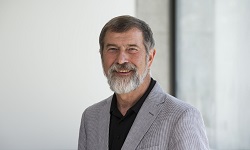
+49 721 608 - 42611
Boes∂kit.edu
Project management
Dr. Laura Wolbring
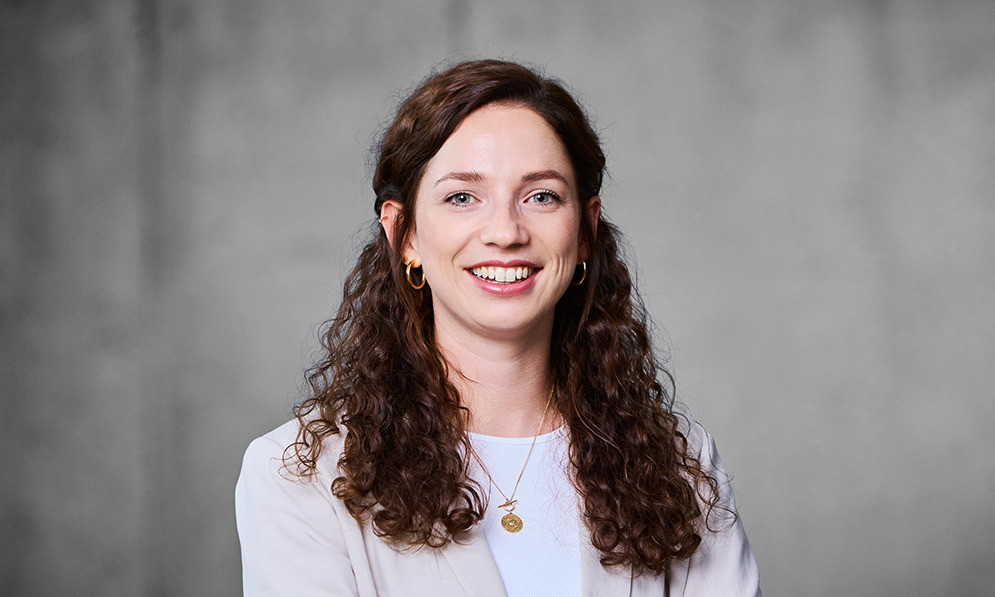
+49 721 608 - 46952
Laura.Wolbring∂kit.edu

AufZack-S: Everyday life and fitness - Activating physical training for senior citizens to cope with everyday life
- contact:
- project group:
Social and health sciences
- funding:
- status:
ongoing
- startdate:
2024
- enddate:
2027
As part of the "AufZack" project, the living environment of senior citizens in assisted living is to be made more "active" in a sustainable and future-oriented way in order to maintain physical and mental health in the long term. The project is based on the objectives of health sport and can make a significant contribution to practice-oriented research in the field of assisted living and can also be integrated into everyday life in the long term.
The project consists of three modules: an exercise program that contributes to increasing independence in everyday life, promoting physical activity and strengthening the psychosocial resources of senior citizens in assisted living facilities. In addition, interested people from the fields of care, physiotherapy and occupational therapy as well as interested relatives are qualified as so-called "AufZack companions". A three-day training course is being developed for this purpose. The offerings are supplemented by a web-based platform that supports the AufZack companions in creating individual training plans and promotes exchange among them.
Project management
Dr. Bettina Barisch-Fritz
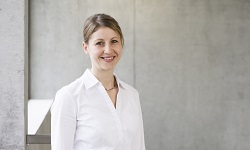
+49 721 608 - 41736
Bettina.Barisch-Fritz∂kit.edu
Project management
Prof. Dr. Alexander Woll
+49 721 608 - 41661
Alexander.Woll∂kit.edu
Project management
Dr. Janina Krell-Rösch
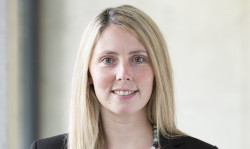
+49 721 608 - 41664
Janina.Krell-Roesch∂kit.edu
Academic assistant
Matteo Bergmann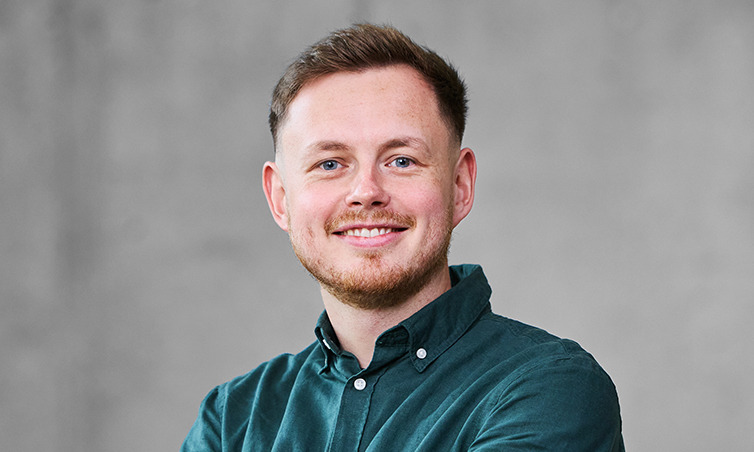
+49721 608 - 48239
matteo.bergmann∂kit.edu
Academic assistant
Leonie Maier
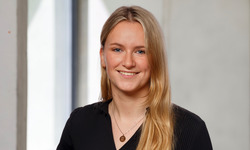
+49 721 608 - 41736
leonie.maier∂kit.edu
Academic assistant
Dr. Jelena Krafft (née Bezold)
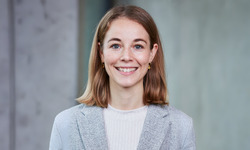
+49 721 608 - 48513
Jelena.krafft∂kit.edu

Research Data Center (RDC) Motor Performance
- contact:
Dr. Katja Keller, Dr. Claudia Niessner
- project group:
Social and health sciences
- status:
ongoing
- startdate:
2023
- enddate:
2027
The RDC Motor Performance aims to enable researchers to share, publish, search, and reuse data on motor performance under the best possible conditions. Until now, access to motor performance data sets has been based exclusively on personal contacts among researchers. The RDC will now build on the MO|RE data repository and, in addition to open access, enable further access, e.g., for sensitive data.
Data on motor performance, when combined with health, social, and educational data, offers great potential for analysis that has hardly been exploited to date. With the establishment of a “Research Data Center for Motor Performance (RDC Motor Performance),” researchers from sports science and related disciplines have the opportunity to share their data openly or restrictively via various data provision channels on the one hand, and to access data from other researchers in a secure environment on the other. Based on the MO|RE data repository, the RDC at the Institute for Sports and Sports Science is the first sports science RDC to be established. So far, only data sets are available for download via the repository after registration. The RDC also creates data provision channels such as remote access or guest research workstations.
Project management
Dr. Claudia Niessner
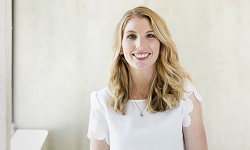
+49 721 608 - 41734
Claudia.Niessner∂kit.edu
Project management
Dr. Katja Keller
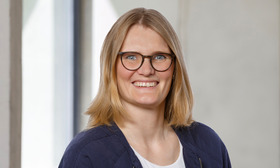
+49 721 608 - 48324
Katja Keller∂kit edu
Academic assistant
Hannah Zimmermann
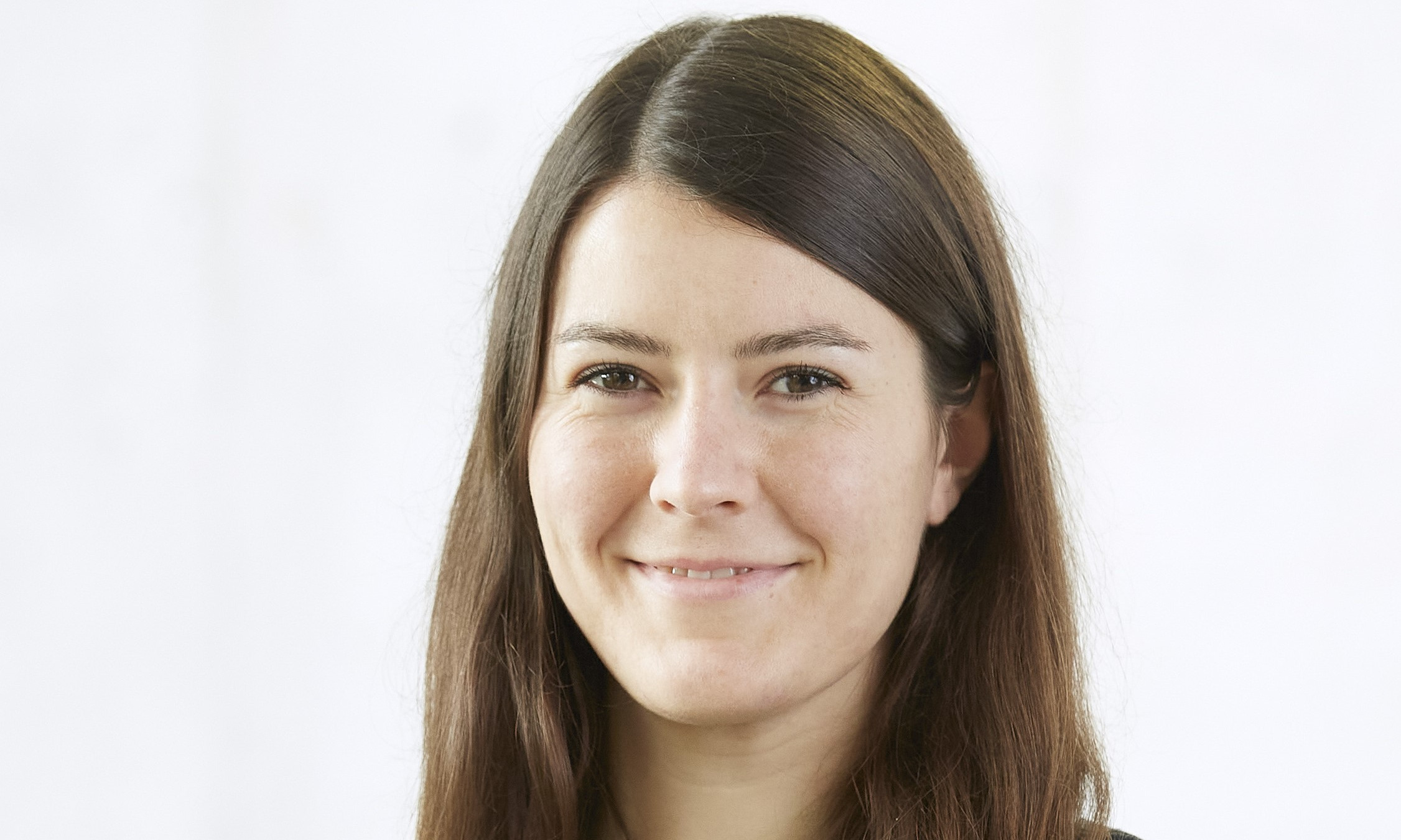
+49 721 608 - 45728
Hannah Zimmermann∂kit edu
Project management
Prof. Dr. Klaus Bös

+49 721 608 - 42611
Boes∂kit.edu
KuMuS-ProNeD - Professional networks for the promotion of adaptive, action-oriented, digital innovations in teacher training in art, music and sports
- contact:
Carolin Knoke
- project group:
Social and health sciences
- funding:
Bundesministerium für Forschung, Technologie und Raumfahrt (BMFTR) (engl. Federal Ministry of Research, Technology and Space)
- startdate:
2023
- enddate:
2026
The joint project KuMuS-ProNeD collaborates with the 'Forschungszentrum für den Schulsport und den Sport von Kindern und Jugendlichen' (FoSS) (engl. Research Centre for School Sports and the Physical Education of Children and Young People) and with the 'Zentrum für Lehrkräftebildung' (ZLB) (engl. Centre for Teacher Education) to advance digital innovations in teacher education and physical education. This cooperation enables the direct integration of scientific findings into teacher training.
The KuMuS-ProNeD consortium aims to establish an integrated overall concept for teacher education in the subjects of art, music, and physical education. This is implemented through three interdisciplinary, cross-phase networks – professional development, lesson development and consultation, and the Future Innovation Hub – supplemented by the cross-sector working area Translation and Dissemination.
At KIT, KuMuS-ProNeD focuses on the subject of physical education and comprises two key subprojects:
- Network 1: Professional Development
This subproject develops and evaluates training opportunities for physical education teachers to integrate digital media into PE lessons for health promotion. The first training day was already designed and implemented in November 2024 in cooperation with the 'Zentrum für Schulqualität und Lehrerbildung' (ZSL) (engl. Centre for School Quality and Teacher Training) Baden-Württemberg. These professional development sessions serve both to further develop the concepts and to conduct needs assessments for future training programs.
- Network 2: Future Innovation Hub
This subproject explores innovative applications of 360° video technology/ VR in physical education. In cooperation with teachers, the ZSL, as well as university and international partners, new application scenarios are tested, transfer opportunities examined, and concepts for movement analysis developed. Cross-site collaboration with universities such as Stuttgart, Mainz, and Tübingen contributes to further conceptual and methodological development.
Term
- 2023 -2026
Participating institutions
- ZLB:
The Center for Teacher Education (ZLB) at KIT is a central scientific institution whose core tasks include advising and supporting students, managing study programs, developing the content of study programs and networking with internal KIT stakeholders and external educational partners. In KuMuS ProNeD, the ZLB supports the development of further education modules for the professional development of teaching staff.

- FoSS:
The Research Center for School Sport and Sport for Children and Young People (FoSS) at the IFSS is dedicated to interdisciplinary research in the field of school sport and sport for children and young people and supports the KuMuS ProNeD project with scientific expertise in health-oriented school sport, the development and evaluation of innovative concepts for physical education and further training for teachers.
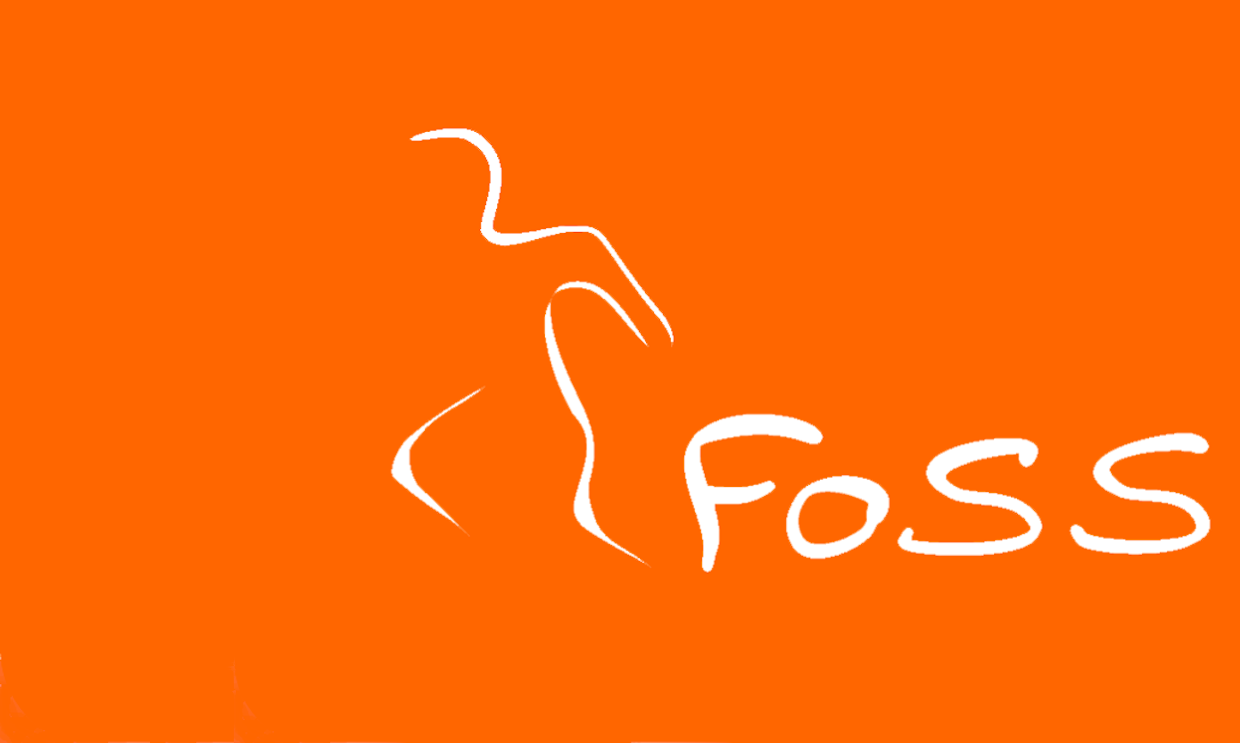
- ISD:
The Institute for School Pedagogy and Didactics (ISD) consists of three departments and professorships (Sports Pedagogy, Interdisciplinary Didactics of STEM Subjects and Sports and Vocational Education), which jointly pursue the goal of further developing teacher training at KIT. In this way, the ISD promotes interdisciplinary (subject) didactic research and builds on KIT's particular strengths in this area.
The BMFTR-funded project KuMuS-ProNeD aims to establish an integrated overall concept for teacher education through three interdisciplinary, cross-phase networks (“Professional Development,” “Lesson Development and Consultation,” and “Future Innovation Hub”). Based on research-informed professional development, a decentralized concept for lesson consultation will be developed to support the subject-specific integration of widely used digital technologies. Forward-looking technologies for KuMuS teaching will be tested jointly with teachers for classroom application.
Art, music, and physical education (KuMuS) are important forms of expression for children and adolescents. Through adaptive teaching, teachers can address heterogeneous learning prerequisites and individually foster the development of action-related competencies in increasingly digitized KuMuS practices. Digital technologies offer innovative possibilities in this regard. The aim of the joint project is to establish a comprehensive overall concept for teacher education in the fields of art, music, and physical education (KuMuS). Three interdisciplinary, cross-phase networks for “Professional Development,” “Lesson Development and Consultation,” and the “Future Innovation Hub” will be created. In addition, a cross-cutting working area for “Translation and Dissemination” will be established.
The three networks focus on adaptive, digital promotion of action-related competencies as a foundation for sustainable participation in (extra)curricular cultural, media, and sports practices in an increasingly digitally shaped world. To offer modern professional development opportunities for teachers of all school types within the proposed competence network for the subjects of art, music, and physical education, multiple teacher training institutions in Baden-Württemberg, North Rhine-Westphalia, and Rhineland-Palatinate are cooperating. The quality and research basis of the professional development programs is ensured through the involvement of renowned institutions such as IWM, DEM, and DIPF, as well as state-level institutes.
The Karlsruhe Institute of Technology (KIT) conducts research in the field of physical education, focusing primarily on the “Professional Development” and “Future Innovation Hub” networks. The project complements the BMBF-funded competence network MINT-ProNeD, which was launched in 2023, and builds on the infrastructure developed there.
Project management
Prof. Dr. Alexander Woll
+49 721 608 - 41661
Alexander.Woll∂kit.edu
Academic assistant
Carolin Knoke
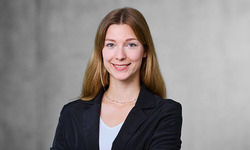
+49 721 608 - 45723
Carolin Knoke∂kit edu
Leibniz ScienceCampus – Digital Transformation of Research (DiTraRe)
- contact:
Dr. Katja Keller, Dr. Claudia Niessner
- project group:
Social and health sciences
- funding:
Leibniz Association
- status:
ongoing
- startdate:
2023
- enddate:
2027
DiTraRe's work program is organized into four research clusters, each based on a specific scientific use case. The Protected Data Rooms research cluster, for example, is dedicated to the use case “Sensitive Data in Sports Science.” The team at the Institute for Sports and Sports Science led by Dr. Claudia Niessner is responsible for this cluster. The other research clusters deal with intelligent data collection (use case: smart laboratories in chemistry), AI-based knowledge spaces (use case: artificial intelligence in biomedical engineering), and publication cultures (use case: publication of large amounts of data).
Project management
Dr. Claudia Niessner

+49 721 608 - 41734
Claudia.Niessner∂kit.edu
Project management
Dr. Katja Keller

+49 721 608 - 48324
Katja Keller∂kit edu
New Balance - Development of a healthy work-life balance
- contact:
Svenja Sers, Dr. Claudia Hildebrand, Dr. Philip Bachert
- project group:
Social and health sciences
- funding:
KIT Strategiefonds
- status:
ongoing
- startdate:
2022
- enddate:
2026
The aim of New Balance is to identify factors influencing well-being, work-life balance and self-perceived productivity in the context of mobile work/studying. Additionally, to determine representative "personas" at KIT, groups of people will be considered for whom balancing work/study and private life is particularly challenging due to their current life situation or career phase.
Funding period
2022 - 2026
Study sample
Employees and students (from the 2nd semester) of the Karlsruhe Institute of Technology
Research questions
What factors influence the well-being/work-life balance/self-perceived productivity of employees and students in the context of mobile working/studying?
How does mobile working/studying influence the well-being, work-life balance, self-perceived productivity, and health behavior of employees and students?
Project management
Prof. Dr. Alexander Woll

+49 721 608 - 41661
Alexander.Woll∂kit.edu
Academic assistant
Dr. Claudia Hildebrand
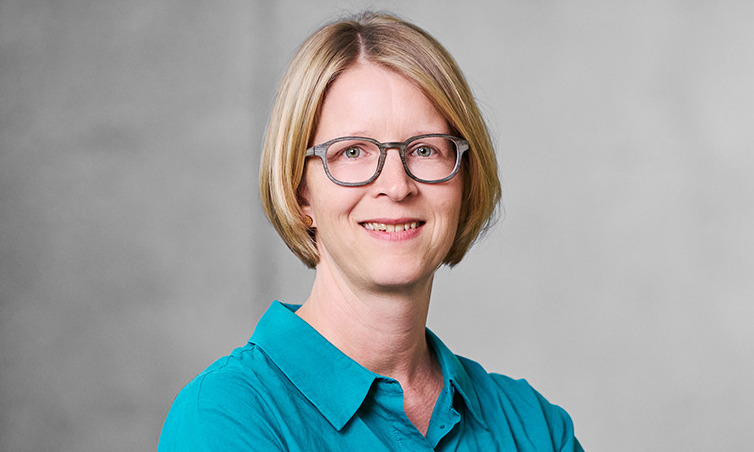
+49 721 608 - 47955
Claudia Hildebrand∂kit edu
Academic assistant
Dr. Philip Bachert
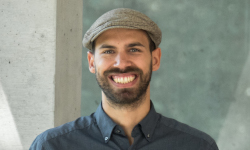
+49 721 608 - 42484
Philip Bachert∂kit edu
Academic assistant
Dr. Marco Giurgiu
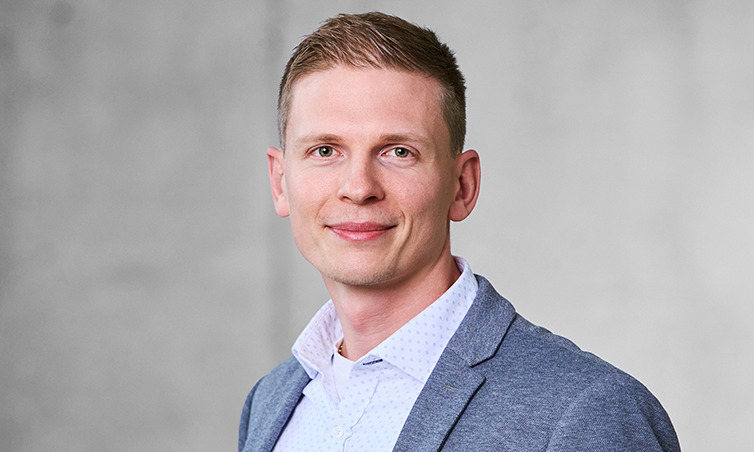
+49 721 608 - 41974
Marco Giurgiu∂kit edu
Academic assistant
Dr. Kathrin Wunsch
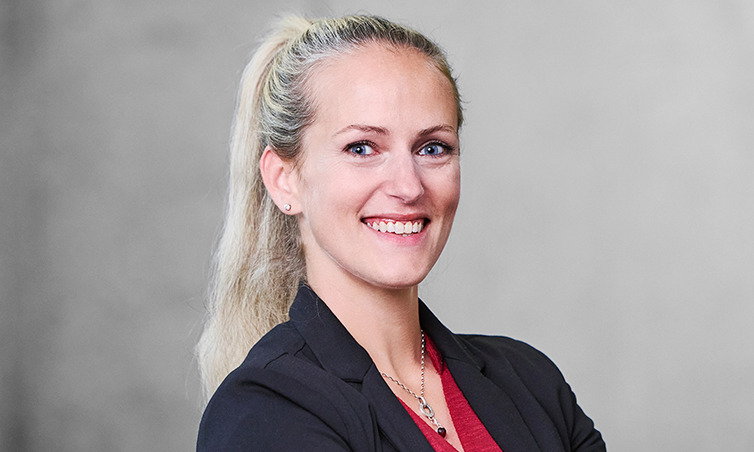
+49 721 608 - 45431
Kathrin Wunsch∂kit edu
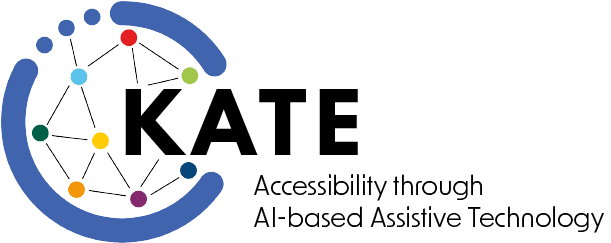
Accessibility through AI-based Assistive Technology (KATE)
- contact:
Matteo Bergmann, Dr. Janina Krell-Rösch
- project group:
Social and health sciences
- funding:
Ministry of Science, Research and Arts Baden-Württemberg
- status:
onging
- startdate:
2022
- enddate:
2027
The cooperative doctoral program "Accessibility through AI-based Assistive Technologies" (KATE) is a new collaborative and interdisciplinary graduate school jointly established by the Karlsruhe Institute of Technology (KIT) and the Karlsruhe University of Applied Sciences (HKA).
The project aims to promote independence, autonomy, and participation in daily life activities for individuals with special needs through the use of artificial intelligence (AI)-based assistive technologies. To achieve this, the program is structured into three research areas:
-AI-based methods for processing text, audio, and multimedia documents
- Interactive training methods and assistive systems
- Analysis of consequences and ethical, legal, social, and societal implications of AI systems for people with disabilities
The Social and Health Sciences in Sport research group will contribute to Research Area 2. This includes investigating how AI-powered assistive robots, exoskeletons, and interactive applications can be used to assess and train motor and cognitive performance.
Scientists involved in the project
- Prof. Dr.-Ing. Rainer Stiefelhagen (KIT)
- Prof. Dr.-Ing. Matthias Wölfel (Karlsruhe University of Applied Sciences)
- Prof. Dr. Tamim Asfour (KIT)
- Prof. Dr. Armin Grunwald
- Prof. Dr. Björn Hein (Karlsruhe University of Applied Sciences)
- Prof. Dr. Steffen Kinkel (Karlsruhe University of Applied Sciences)
- Prof. Dr. Astrid Laubenheimer (KIT)
- Dr. Linda Nierling (KIT)
- Prof. Dr. Alexander Waibel (KIT)
- Prof. Dr. Christian Wurll (Karlsruhe University of Applied Sciences)
- Prof. Dr. Caroline Karmann (KIT)
- Prof. Dr. Kathrin Gerling (KIT)
Project management
Prof. Dr. Alexander Woll

+49 721 608 - 41661
Alexander.Woll∂kit.edu
Project management
Dr. Janina Krell-Rösch

+49 721 608 - 41664
Janina.Krell-Roesch∂kit.edu
Fitness Check - The fitness check for first semester students at KIT
- contact:
Dr. Philip Bachert, Raphael Schilling
- project group:
Social and health sciences
- funding:
AOK Mittlerer Oberrhein (health care provider)
- status:
ongoing
- startdate:
2023
- enddate:
2026
The objective of the “Fitness Check” project is to provide first-year students at KIT with individualized feedback on their physical fitness and health status, to increase their awareness of health- and fitness-related issues, and to inform them about the diverse range of physical activity and health promotion programs offered by the Institute of Sports and Sports Science. The Fitness Check is designed to present participants with specific action-oriented recommendations for the development of a health-promoting lifestyle, by encouraging changes in personal habits or environmental factors
The “Fitness Check” is a low-threshold fitness and health-related awareness intervention offered to all first-year students at the beginning of each winter semester at KIT. In the first stage, participants complete a Social Norms-based online survey assessing their motor performance and other health-relevant parameters. These individual results are then compared to aggregated data from the broader KIT student population, allowing participants to contextualize their own values in relation to perceived social norms.
In the second stage, a limited number of first-year students from all academic disciplines are given the opportunity—on a first-come, first-served basis—to participate in a low-threshold basic fitness assessment using bioelectrical impedance analysis (BIA). Participants receive a printed summary of their test results, followed by an interpretation provided by the test facilitator.
The third stage consists of a personalized consultation based on the individual assessment results. This includes tailored recommendations for further steps, along with information materials to help students navigate and access the wide range of follow-up services and health-related offerings available at KIT.
for each individual survey participant.
In a second step, a limited number of these first semester students from all disciplines at
of all disciplines at KIT will be given the opportunity to take part in a low-threshold
to undergo a low-threshold basic fitness examination based on a bioelectrical impedance analysis.
impedance analysis. As part of the analysis, the participating students
analysis, participating students receive a summary of the test results in the form of a
printout with subsequent interpretation by the respective test supervisor.
In a third step, the results of the analysis are used as a basis for
personal counseling regarding possible follow-up measures and support
services at KIT, including the provision of information material that provides orientation about the
information about the various potential follow-up offers.
Project management
Philip Bachert
Phone: +49 721 608 - 42484
Philip.Bachert∂kit.edu
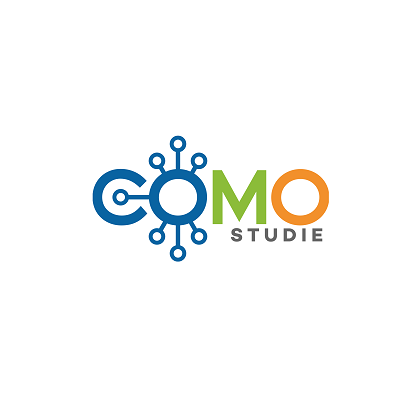
COMO
- contact:
Dr. Carmen Volk, Dr. Claudia Niessner
- project group:
Social and health sciences
- funding:
Federal Ministry of Research, Technology and Space
- status:
ongoing
- startdate:
2023
- enddate:
2026
The aim of the COMO study is to analyze changes in (1) physical and (2) mental health, as well as (3) health behavior in children and adolescents during the years 2023, 2024, and 2025, following the COVID-19 pandemic, considering (4) socioecological contexts. The goal is to identify particularly vulnerable groups and thus create a (5) data foundation for targeted health promotion, prevention, and intervention approaches.
Funding period
2023 - 2026
Study sample
Two existing longitudinal samples (MoMo-Corona Study, COPSY Study), new study sample (two-stage, register-based sampling procedure)
Research questions
How do the physical health, mental health and health behaviour of children and adolescents change in the course of the COVID-19 pandemic in Germany? How do selected socioecological factors influence changes in physical and mental health, as well as health-related behavior, in children and adolescents during and after the COVID-19 pandemic in Germany? Which social, personal, familial, and social risk factors and resources are associated with the physical and mental health of children and adolescents in the course of the COVID-19 pandemic in Germany? What are the associations between physical and mental health as well as the health behavior of children and adolescents in the course of the COVID-19 pandemic? How are physical activity and (mental)health interconnected within individuals over time, considering factors such as social isolation, loneliness, and physical activity?
The COMO study is based on two existing population-based longitudinal studies (COPSY, MoMo-Corona-Study) as well as a new study sample. Children and adolescents (aged 4-17) from the new sample and their parents are invited to complete an online questionnaire in 2023, 2024 and 2025. The online survey includes for example questions on health behavior, mental and physical health, as well as socioecological variables. In addition, a subsample is invited to complete a digital motor performance test (online survey 2023) and/or to wear an accelerometer for 7 days to assess physical behaviour (online survey 2024). Participants who took part in all surveys of the MoMo-Corona study are asked to participate in an in-depth, smartphone-based survey at the individual level.
Network management
Prof. Dr. Alexander Woll

+49 721 608 - 41661
Alexander.Woll∂kit.edu
Dr. Claudia Niessner
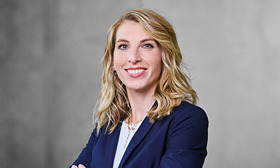
+49 721 608 - 41734
Claudia.Niessner∂kit.edu
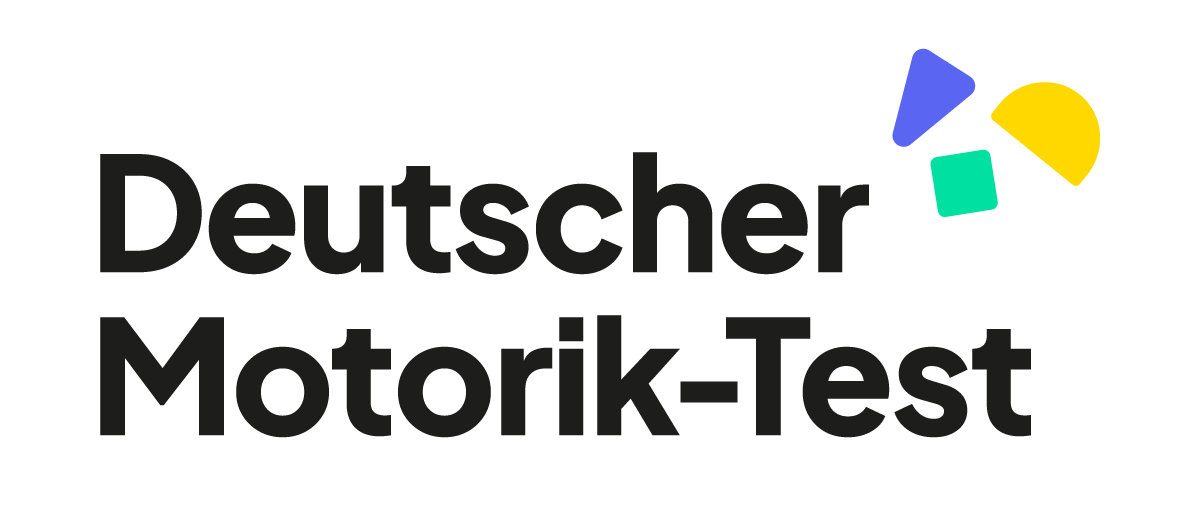
German Motor Test
- contact:
Dr. Lars Schlenker
- project group:
Social and health sciences
- status:
ongoing
The German Motor Test (DMT) enables the measurement and evaluation of motor skills in children and adolescents aged 6–18. It was developed by leading experts from the German Association for Sports Science (dvs). The impetus for this came from a request made by the Conference of Sports Ministers (SMK) to the dvs.
"Motor performance is closely related to health. This relationship becomes stronger with increasing age. The current discussion in science, the media, and the public shows that the performance of today's children and adolescents has declined compared to previous generations.
On behalf of the Conference of Sports Ministers, the ad hoc committee “Motor Tests for Children and Adolescents” of the German Association for Sports Science developed the DMT, which allows the level of motor skills and abilities of children and adolescents to be continuously assessed nationwide in order to make future political decisions based on reliable data.
The test profile consists of a total of eight exercises and assesses physical performance in the areas of endurance, strength, coordination, speed, and agility. The test tasks only require basic motor skills and no specific skills. With the help of the DMT, both current performance (cross-sectional studies) and performance and development trends (longitudinal studies) can be determined.
The test is considered highly standardized and can be easily performed with minimal equipment. In Baden-Württemberg and North Rhine-Westphalia, the DMT is already used almost everywhere in the form of the “Kinderturn-TestPLUS” or “Motorische Test” (motor skills test). Numerous studies of the quality criteria have confirmed its good objectivity, reliability, and validity.
The test results can be evaluated manually or using an evaluation platform.
Overall, the DMT is considered a meaningful sports motor skills test profile for measuring general sports motor skills performance.
Project management
Prof. Dr. Klaus Bös

+49 721 608 - 42611
Boes∂kit.edu
Project management
Prof. Dr. Alexander Woll

+49 721 608 - 41661
Alexander.Woll∂kit.edu
Project Coordinator
Dr. Claudia Niessner

+49 721 608 - 41734
Claudia.Niessner∂kit.edu
Project Coordinator
Dr. Lars Schlenker
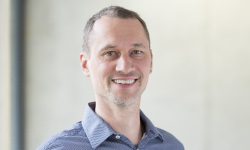
Phone: +49 721 608 - 46948
Lars.Schlenker∂kit.edu
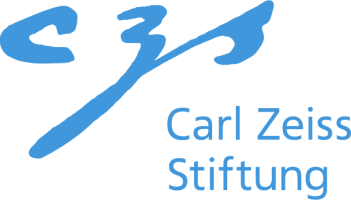
Staying young with robots (JuBot) - Versatile Assistive Robotics for Mastering Daily Life
- contact:
Tobias Möller, Dr. Janina Krell-Rösch
- project group:
Social and health sciences
- funding:
Carl-Zeiss-Stiftung
- status:
ongoing
- startdate:
2021
- enddate:
2026
The aim of the joint project "Staying young with robots (JuBot) - Versatile assistance robotics for coping with everyday life" is to develop humanoid robot systems and exoskeletons with assistance functions that support older people in coping with everyday tasks. The focus here is on personalizing the assistance functions in order to optimally adapt the systems to the very individual needs of older people. The project is divided into four areas: (A) mechano-informatics of assistive robot technologies, (B) personalized and context-sensitive assistance, (C) motor and cognitive training and (D) future life with assistive robots. The scientific contribution of the Social and Health Sciences of Sport work area is assigned to areas C and D. Within area C, concepts are being developed with which the motor performance of older people can be diagnosed with the help of humanoid robot systems and exoskeletons and improved or maintained through robot-assisted, personalized training programs. Furthermore, area D is investigating how these systems can be integrated into the real world and subsequently validated.
The press release on the project launch can be viewed here.
Project management
Prof. Dr. Alexander Woll

+49 721 608 - 41661
Alexander.Woll∂kit.edu
Project Coordinator
Dr. Janina Krell-Rösch

+49 721 608 - 41664
Janina.Krell-Roesch∂kit.edu
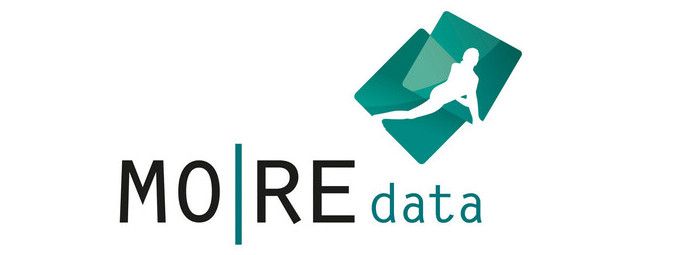
Motor Research Data (MO | RE data)
- contact:
Dr. Katja Keller, Dr. Claudia Niessner
- project group:
Social and health sciences
- startdate:
2014
- enddate:
ongoing
MO|RE data is a DFG-funded interdisciplinary project led by the Institute of Sports and Sports Science in collaboration with the RDM@KIT service team and external IT experts.
Data on motor performance has been collected in a large number of projects for decades, both nationally and internationally, but the current state of research is characterized by inconsistent and sometimes contradictory results. In addition, much of the data collected never leads to publications and thus remains inaccessible to interested research groups.
The aim of the project is to provide a reliable platform for the publication and archiving of research data in sports science. Motor skills data will be prepared in a citable format, making it scientifically reusable for interested research groups. Furthermore, MO|RE data generates comprehensive standard data and provides materials for motor skills tests. The initial focus is on data from the German Motor Skills Test and other selected standardized test tasks that are widely used.
MO|RE data should be accessible free of charge to scientists, practitioners (trainers/teachers/doctors) and the interested public. MO|RE data is intended to be a web-based application whose research data can be exported and reused as citable and internationally verified data. This should create incentives to share one's own research data and to conduct further research with citable data in order to improve and expand the database.
A web-based application was already created during the first project phase (2014-2016). During the second project phase (2021-2022), the aim is now to expand this in terms of user-friendliness and to implement measures for networking, quality assurance, and sustainability.
Project management
Prof. Dr. Klaus Bös

+49 721 608 - 42611
Boes∂kit.edu
Project management
Prof. Dr. Alexander Woll

+49 721 608 - 41661
Alexander.Woll∂kit.edu
Project management
Dr. Claudia Niessner

+49 721 608 - 41734
Claudia.Niessner∂kit.edu
Project management
Dr. Lars Schlenker

Phone: +49 721 608 - 46948
Lars.Schlenker∂kit.edu
Project Coordinator
Dr. Katja Keller

Phone: +49 721 608 - 48324
Katja.Keller∂kit.edu
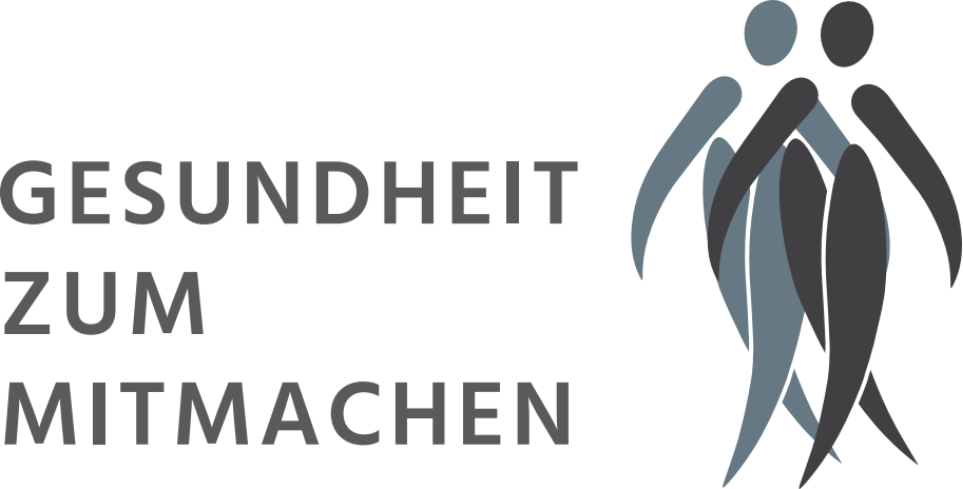
Gesundheit zum Mitmachen
- contact:
- project group:
Social and health sciences
- funding:
Municipality of Bad Schönborn, AOK Mittlerer Oberrhein (health care provider)
- status:
ongoing
- startdate:
1992
- enddate:
2027
The “Gesundheit zum Mitmachen” project in Bad Schönborn is a population-based longitudinal study investigating the interrelationships between physical activity, fitness, and health. Beyond exploring these associations, the project also aims to translate its findings into practical, exercise-oriented health promotion strategies that can be implemented in other communities. Initiated in 1992 as a collaborative effort between the UKK Institute in Tampere, Finland, and the Institute of Sports and Sports Science at the Karlsruhe Institute of Technology (KIT), the study has since undergone six assessment waves in 1992, 1997, 2002, 2010, 2015, and 2021. The seventh wave was carried out in early summer 2025.
Term
1992-2027
Study sample
Residents of Bad Schönborn aged 35 and above (covering middle to late adulthood)
Research questions
- How physically active, fit and healthy are the citizens of Bad Schönborn? And how do activity, fitness and health change in middle and later adulthood?
- Why do some become ill while others remain healthy despite having the same living conditions?
- What direct and indirect effects does sporting activity have on fitness and various health measures, taking into account other internal and external factors?
The research concept of “Gesundheit zum Mitmachen” is designed as a holistic approach, aiming to comprehensively capture and evaluate pertinent factors that may impact participants' health. This methodology enables the identification of social, health-related, personal, and environmental determinants of individual fitness and health status, and helps derive actionable recommendations for improving personal living conditions. Physical activity and exercise behavior, as well as psychosocial health needs and resources, are assessed through questionnaires that were specifically developed for the purpose of the study. Laboratory analyses are conducted to examine blood values, while body composition is assessed through measurements of body mass index (BMI) and body fat percentage. Participants also undergo thorough orthopedic, internal, and neurological examinations. Subsequently, a standardized motor performance test battery is used to evaluate current physical capabilities. This includes assessments of strength, speed, endurance, coordination, and cognitive functions such as reaction time and hand-eye coordination, providing insight into each participant’s health and fitness status.
Project management
Prof. Dr. Klaus Bös

+49 721 608 - 42611
Boes∂kit.edu
Project management
Prof. Dr. Alexander Woll

+49 721 608 - 41661
Alexander.Woll∂kit.edu
Project Coordinator
Dr. Janina Krell-Rösch

+49 721 608 - 41664
Janina.Krell-Roesch∂kit.edu
Project Coordinator
Larissa Appel
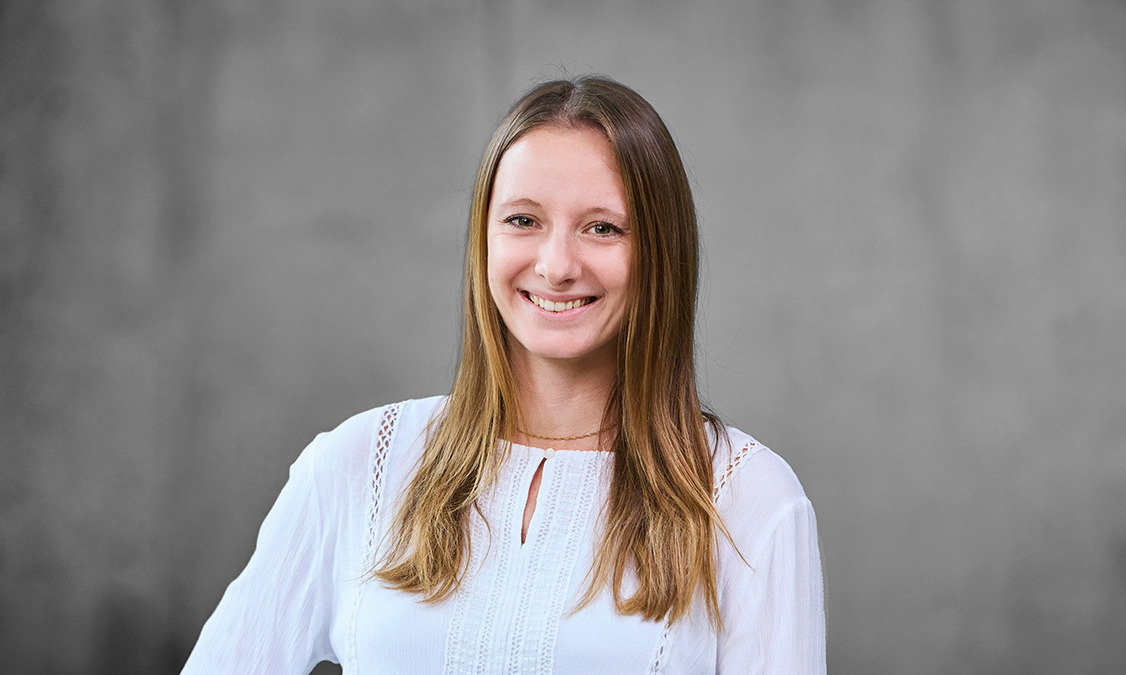
+49 721 608 - 46676
Larissa.Appel∂kit.edu
Academic assistant
Anna Dziuba
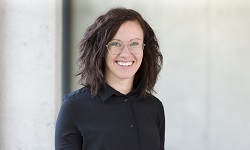
Anna.Dziuba2∂kit.edu
Academic assistant
Raphael Schilling
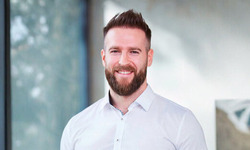
+49 172 797 - 4624
Raphael.Schilling∂kit.edu
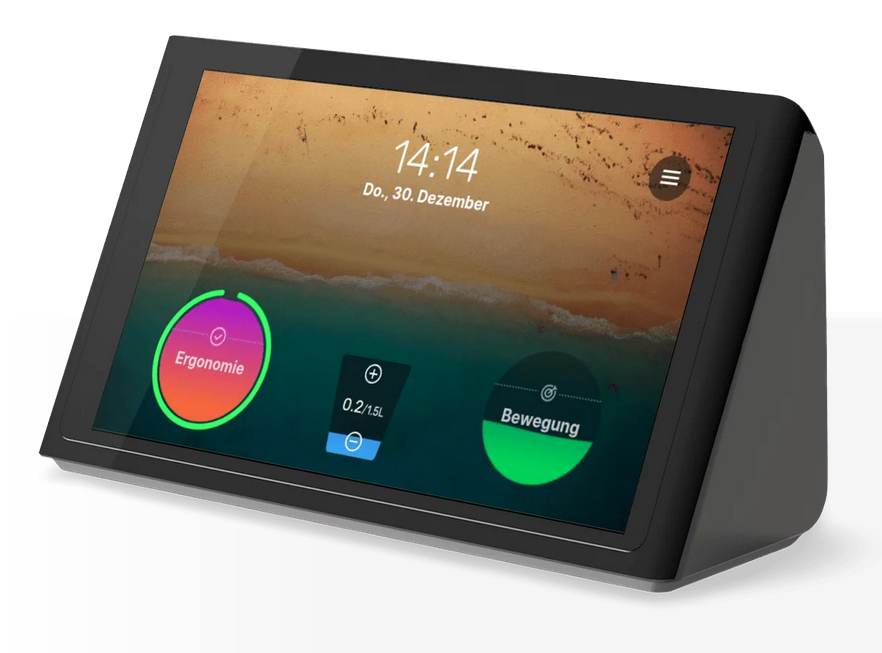
SMIGAA – Smarter, intelligenter Gesundheitsassistent am Arbeitsplatz
- contact:
Dr. Claudia Hildebrand, Jonathan Diener
- project group:
Social and health sciences
- status:
ongoing
- startdate:
2023
- enddate:
2025
The SMIGAA project aims to (further) develop and evaluate an intelligent and digital health assistant. This health assistant is intended to contribute to ergonomic sitting and regular exercise breaks while working at a desk by using a depth sensor to recognize the user's sitting posture and making real-time posture corrections and individual suggestions for exercise.
Further development includes improving interaction with the health assistant by implementing behavior change techniques and integrating a personal approach to users to ensure sustainable use. Furthermore, specific balancing exercises will be developed based on the detection of highly stressed areas of the body. The evaluation is carried out as part of a controlled effectiveness study.
In addition, the health assistant's sensor technology makes it possible for the first time to collect extensive data on the health behavior of employees at desk workstations, which goes far beyond accelerometer data, for example. The resulting findings are to be published and can be used in the future to adapt interventions to actual behavior.
The project focuses on the following questions:
- How must human-technology interaction be designed in order to achieve long-term behavioral change in employees who work predominantly at a desk?
- Is the product developed as part of the SMIGAA project effective and easy to integrate into everyday working life?
Project management
Prof. Dr. Alexander Woll

+49 721 608 - 41661
Alexander.Woll∂kit.edu
Project management
Dr. Claudia Hildebrand

+49 721 608 - 47955
Claudia Hildebrand∂kit edu
Project coordination
Jonathan Diener
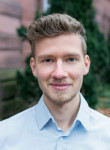
Phone: +49721 608 - 41736
Jonathan.Diener ∂does-not-exist.kit edu
ActiveLearn – Gesund Lernen am KIT
- contact:
Dr. Philip Bachert, Sarah Höfers
- project group:
Social and health sciences
- funding:
KIT quality pact funds
- status:
ongoing
- startdate:
2023
- enddate:
2025
As part of the ActiveLearn project, health-promoting learning spaces are to be created at KIT and students and lecturers are to be sensitized to the topic of "healthy learning". The focus is on 'active learning on campus', but 'active learning in homestudying' and the interaction of lecturers with students in the teaching setting are also taken into account.
The program, centered around networking and health communication, addresses the topic of "Healthy Learning" through three core components: physical activity, relaxation, and ergonomics. These elements will be designed and delivered in a modular and flexible format to meet the diverse needs of participants:
1) Development and implementation of trainings and workshops (e.g., How to ergonomically set up your learning workstation), as well as the provision of short movement (e.g., 5-minute neck fitness) and relaxation breaks (e.g., 5-minute progressive muscle relaxation). These activities will take place directly at the learning locations, in order to keep participation barriers as low as possible.
2) Development of communication materials on the topic of "Healthy Learning" (e.g., posters with neck stretching exercises or information on "How to learn in a healthy way"), which will be displayed on campus and at learning spaces at KIT to further raise awareness of the topic.
2) Development of communication materials on the topic of "Healthy learning" (e.g. posters with neck stretching exercises or on the topic of "How do you learn healthily?"), which are displayed on campus and at the learning locations at KIT to raise additional awareness of the topic.
Project management
Philip Bachert

Phone: +49 721 608 - 42484
Philip.Bachert∂kit.edu
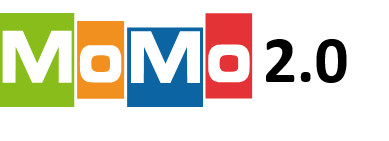
MoMo 2.0
- contact:
Prof. Dr. Alexander Woll, Dr. Claudia Niessner, Dr. Laura Wolbring
- project group:
Social and health sciences
- funding:
Federal Ministry of Health
- startdate:
2022
- enddate:
2025
The Motorik-Modul Study (MoMo) originated as a sub-module of the nationwide German health Interview and Exmanination Survey for Children and Adolescents (KiGGS) of the Robert Koch Institut (RKI) and has been conducted since 2003. For 20 years, the MoMo data has formed a unique basis for evidence-based health policy action and health policy decisions. In view of current developments (including the COVID-19 pandemic, digitalisation, social inequality and migration), a continuation of the study is of great scientific and social relevance. As a result of a resolution of the German Bundestag, we are therefore now conducting the study under the name MoMo 2.0 in even more locations in Germany since October 2022. Funded by the German Federal Ministry of Health, the aim of MoMo 2.0 is to study the course and development of physical fitness and activity behavior of the population living in Germany over a longer period of time and to analyze it against the backdrop of current social events.
Funding period
2022 - 2025
Participating institutions
- Karlsruhe University of Education
- University of Constance
- Humboldt University of Berlin
Study sample
For MoMo 2.0, a representative sample of children and adolescents aged 4 to 17 was drawn for Germany (register sample). The cross-sectional sample is supplemented by existing longitudinal subjects from the MoMo study (2003-2022).
Research questions
- How motorically capable, physically active and healthy are children and adolescents in Germany?
- How do the motor performance, physical activity and biopsychosocial health of children and adolescents change over time?
- What correlations exist between physical activity/inactivity and motor performance and biopsychosocial health?
The Motorik-Module study assessment consists of anthropometric measurements, recording activity behavior using questionnaires, conducting fitness tests, and a health interview. Selected participants receive an accelerometer to record the duration and intensity of their physical behavior over a week.
Examination parameters
| 4-5 years | 6 years and older | |
|---|---|---|
| Anthropometric examination |
|
|
| Motor tests |
|
|
| Activity recording |
|
|
| Health interview |
|
|
Network management
Prof. Dr. Alexander Woll

+49 721 608 - 41661
Alexander.Woll∂kit.edu
Project management
Dr. Claudia Niessner

+49 721 608 - 41734
Claudia.Niessner∂kit.edu
Project management
Dr. Laura Wolbring

+49 721 608 - 46952
Laura.Wolbring∂kit.edu

Fitnessbarometer
- contact:
Dr. Claudia Niessner, Prof. Klaus Bös
- project group:
Social and health sciences
- status:
ongoing
- startdate:
2021
- enddate:
2024
Since 2012, KITT+3-10 has been used in kindergartens, elementary schools, and sports clubs as part of the “Turnbeutelbande – Motorik Test für Kinder” initiative to assess the motor skills of children aged 3 to 10. The resulting scientific findings are published annually in the form of the Fitness Barometer. The aim is to bring the promotion of physical activity among children to the attention of politicians and society and to raise awareness of the importance of physical activity.
The test procedure and standard values of KITT+3-10 are identical to those of the German Motor Test (DMT). KITT+3-10 is divided into two modules: Module 1 is designed for children of kindergarten age and comprises four test tasks, while Module 2 is recommended for children of primary school age and includes all eight test tasks of the DMT.
Project management
Prof. Dr. Klaus Bös

+49 721 608 - 42611
Boes∂kit.edu
Project management
Prof. Dr. Alexander Woll

+49 721 608 - 41661
Alexander.Woll∂kit.edu
Project management
Dr. Claudia Niessner

+49 721 608 - 41734
Claudia.Niessner∂kit.edu
Project management
Dr. Lars Schlenker

Phone: +49 721 608 - 46948
Lars.Schlenker∂kit.edu
Project Coordinator
Dr. Katja Keller

Phone: +49 721 608 - 48324
Katja.Keller∂kit.edu
Motorik module longitudinal study
|
The motor module (MoMo), which is part of the children’s and adolescent health survey (KiGGS) of Robert Koch Institute (RKI) in Berlin, was initially funded as a cross-sectional study by the Federal Ministry for Family, Children, Youth, Culture and Sport from 2003 until 2006 and provided representative data on a national level concerning the motor performance and physical activity of children and adolescents (N = 4,528) between the ages of 4 and 17 years. The follow-up application to the MoMo baseline study entitled "Physical fitness and physical activity as determinants of health development in children and adolescents" was approved until 2021 after receiving approval from the Federal Ministry of Education and Research in March 2015. The continuation of the MoMo study as a combined cross-sectional and longitudinal study is carried out as a joint project of KIT, Pädagogische Hochschule Karlsruhe and RKI under the overall direction of Professor Dr. med. Alexander Woll of KIT. A total of 5,106 children, adolescents and young adults participated in MoMo study Wave 1 from 2009 to 2012. MoMo study Wave 2 has already been started and builds on the baseline survey and MoMo study Wave 1. Website |
||||
| Funded by: | ||||

